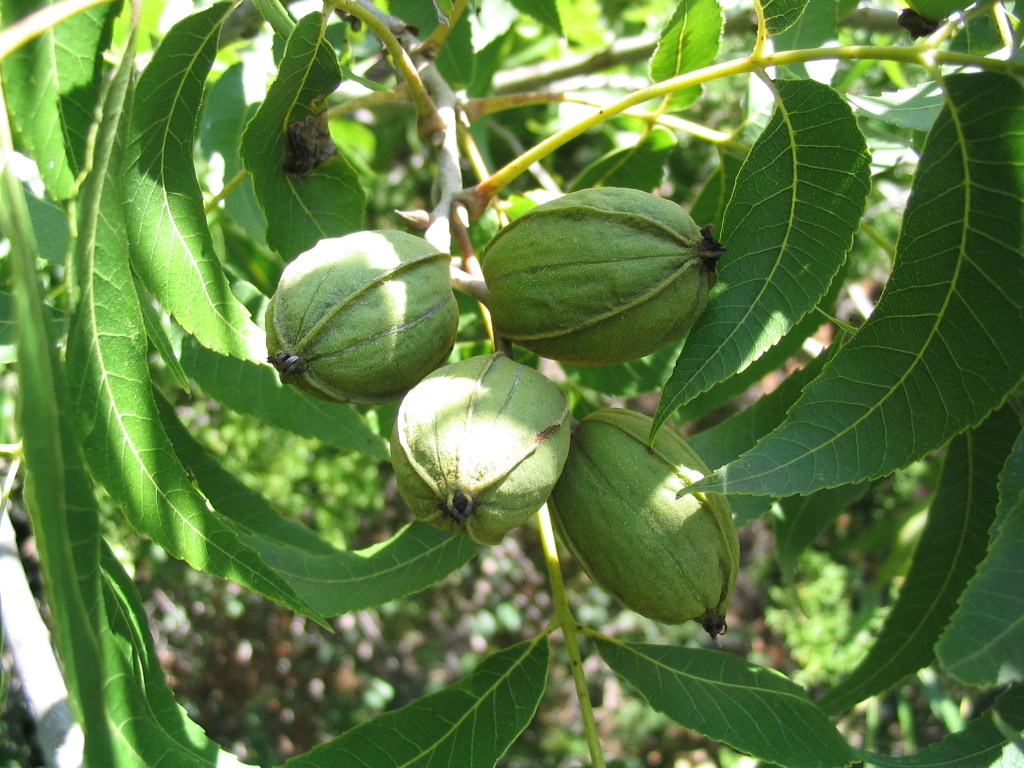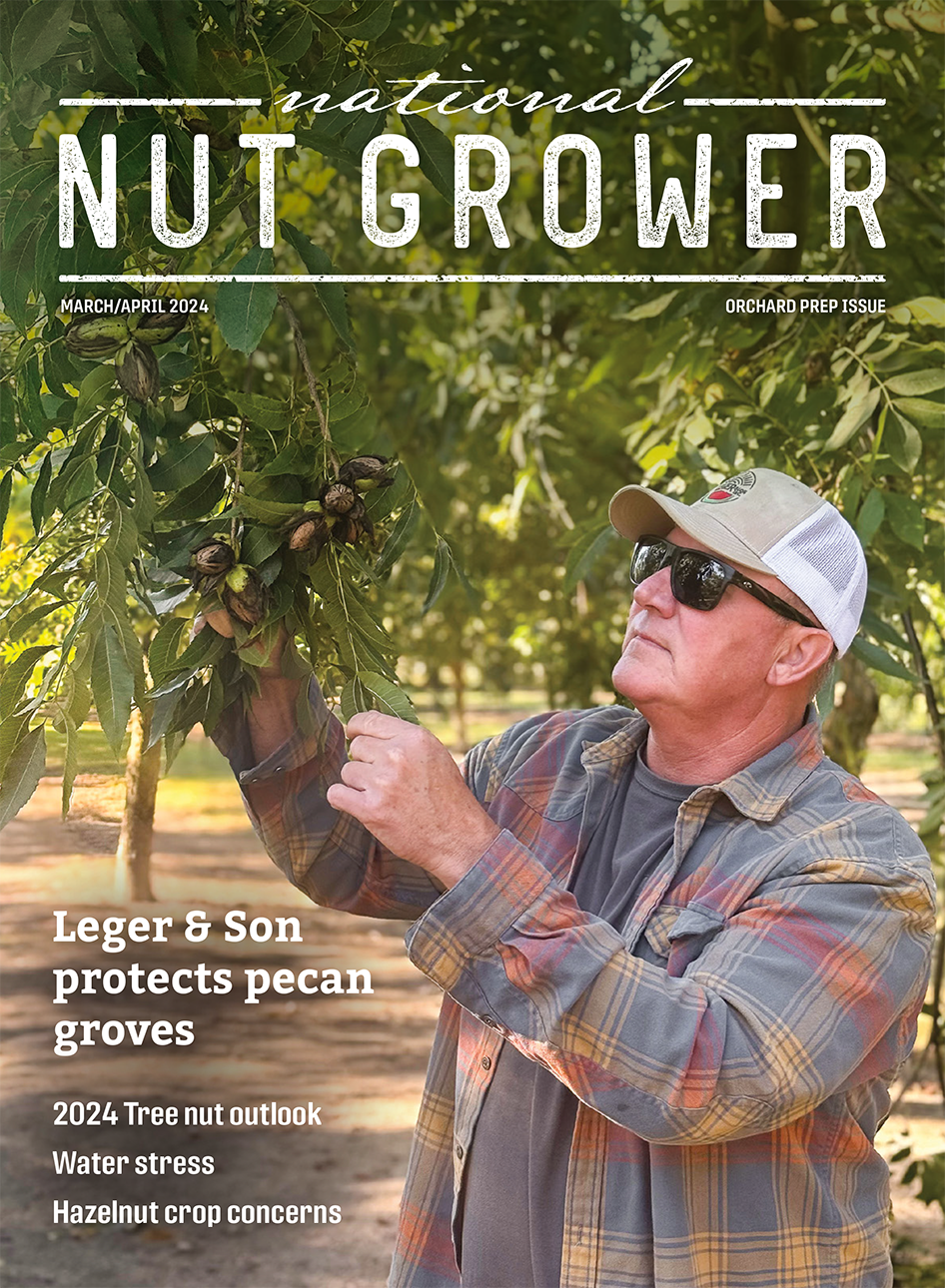
Jul 1, 2021Making the most of pecans in the Southeast
Nuts are considered a storage organ for nutrients produced by the leaves of any nut-bearing tree. These stored nutrients can then be used for germination, respiration, and initial growth of the seedling until it has enough leaves to produce its own food. Pecan nut production starts with the onset of flowering and subsequent pollination of those flowers. About 25% of the nutlets, or immature nuts, are dropped in April and June. The April drop is typically immature flowers, flowers that were not pollinator, or flowers that were pollinated but did not develop nutlets due to environmental conditions.
The June nut drop is typically more noticeable and is caused by a lack of nutritional support for the nutlet or more commonly, due to the lack of fertilization of the egg cell. Both of these drops increase in times of environmental stress and in self-pollinating systems.
The development of the nut is further broken down into two phases. Phase I occurs from pollination in April and May to shell hardening sometime in August/September. It takes about 90 days for the pecan to grow to its full size, with the majority of growth occurring in the last 30-45 days or so. Once you hit shell hardening, the space for the kernel is as large as it’s going to be – so any management you do to improve pecan size is only effective during this phase.
The actual physical size of the nuts is genetically determined by the variety you have, but other influences on overall nut size, include the health/vigor of the overall tree, the position of the nuts on the tree, fertility of the soil and moisture supply, and the size of the crop. In the absence of a soil and leaf tissue test, you can fertilize by broadcasting 4 lbs of a 10-10-10 fertilizer for each inch of trunk diameter (max 25lb/tree) in mid-March. You should also apply 3-5lbs of zinc sulfate to mature trees each year as zinc can be a limiting nutrient for pecan production. By end of Phase I, there is a third nut drop of 8-10% of the crop, typically due to drought/water stress, excess water, hot/dry weather, insect and physical damage to the shell.
Phase II of nut production is considered the “nut-filling” stage. At this time, the actual pecan is as large as it’s going to be, and the shell hardens. Typically, shell hardening is complete in Georgia between August and September. The kernel, or meat of the nut, will start filling in August and continue to fill as long as conditions are correct, typically in October. How large and well-developed the kernels become is determined by several factors. The size of crop, again, has an impact – essentially, trees with large numbers of pecans will produce smaller nuts, and smaller kernels, since the tree is trying to fill so many of them.
We recommend thinning your crop when necessary to improve nut size and kernel quality. The condition of leaves directly correlates to the tree’s ability to make food and develop the kernel, and any insect or disease damage to the leaves or pecans themselves can dramatically impact nut fill. Another factor is whether the tree is in a bearing year or an alternate year, and what the previous year’s crop was. A large crop will lead to less production the next year as the tree has used the majority of its energy reserves the year prior. Appropriate fertilization and thinning of the crop can help mitigate the effect of alternate bearing cycles.
Finally, probably the most important impact on kernel fill is the weather. Hot, dry conditions will reduce the tree’s ability to develop a quality kernel, so providing adequate irrigation is essential, especially in the first two weeks of September. From April-October, the tree needs 700-1,000 gallons of water per week. In Phase II, that amount should be doubled.
Understanding the importance of water, fertilization, and crop thinning for better pecan quality is key. If you have any questions about your pecans or if you need help calibrating your irrigation system, let us know at uge3181@uga.edu or 706-359-3233.
– Lincoln County University of Georgia Extension
Photo: University of Georgia Extension







